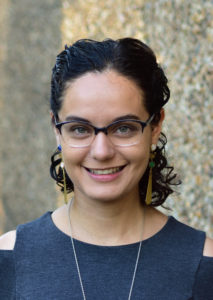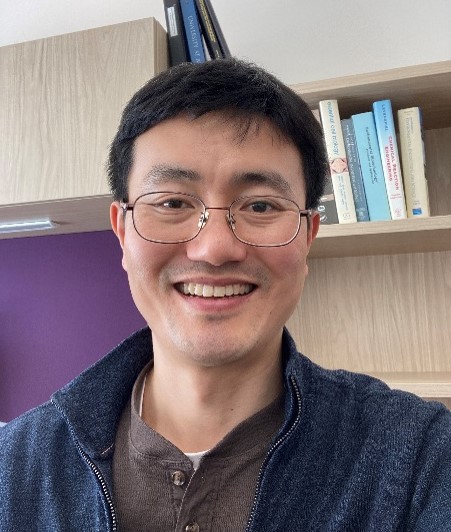 Jeseth Delgado Vela, PhD is Assistant Professor in the Civil and Environmental Engineering Department at Howard University. Her research applies tools in molecular biology to develop sustainable and cost-efficient urban water treatment. She received her PhD and master’s degree in Environmental Engineering from the University of Michigan. She received her bachelor’s degree in Civil Engineering from the University of Texas at Austin. She is a recipient of the Ford Foundation Dissertation Award (2016), was named an Early Career Research Fellow by the Gulf Research Program in 2021, and was awarded an NSF CAREER Award in 2022. In Fall 2023, she will join the Department of Civil and Environmental Engineering at Duke University.
Jeseth Delgado Vela, PhD is Assistant Professor in the Civil and Environmental Engineering Department at Howard University. Her research applies tools in molecular biology to develop sustainable and cost-efficient urban water treatment. She received her PhD and master’s degree in Environmental Engineering from the University of Michigan. She received her bachelor’s degree in Civil Engineering from the University of Texas at Austin. She is a recipient of the Ford Foundation Dissertation Award (2016), was named an Early Career Research Fellow by the Gulf Research Program in 2021, and was awarded an NSF CAREER Award in 2022. In Fall 2023, she will join the Department of Civil and Environmental Engineering at Duke University.
Read Jeseth Delgado Vela’s Emerging Investigator article “The role of phage lifestyle on wastewater microbial community structure and function: insights from diverse microbial environments” and read more about her in the interview below:
Your recent Emerging Investigator Series paper focuses on The role of phage lifestyle on wastewater microbial community structure and function: insights from diverse microbial environments. How has your research evolved from your first article to this most recent article?
My first article discussed control of biological nitrogen removal systems in wastewater treatment. My independent research career has focused on developing novel ways to control microbial communities. I am currently focused on studying microbial community molecular signals, including signals that phages use, and how engineers may hack these signals for bioprocess improvements.
What aspect of your work are you most excited about at the moment?
I am excited about applying bioinformatic methods to evaluate phage communities and auxiliary metabolic genes in wastewater microbial communities. I’m energized by just how hard this line of research is, there really are a lot of unknowns on the role and ecology of phage in wastewater.
In your opinion, what are the most important questions to be asked/answered in this field of research?
I think there is a lot of interest in controlling microbial communities using phages (phage therapy for wastewater). It’s an exciting concept, but I think we need to better understand the hosts, ecology, and function of phages in wastewater treatment.
What do you find most challenging about your research?
We have a lot of bioinformatic tools that we can apply, but there are so many unknowns in environmental microbial communities. It can be frustrating to have the majority of your data be ‘unknown proteins’ or ‘unknown organisms.’ But, this is also a motivating aspect of the research—there is so much left to understand!
In which upcoming conferences or events may our readers meet you?
I’ll be at AEESP in Boston in June.
How do you spend your spare time?
I love outdoor entertaining of friends and family. If you visit me and the weather is nice enough, there will be a grill party. I also am trying to grow veggies to varying degrees of success.
Which profession would you choose if you were not a scientist?
Truthfully, I probably would be a practicing environmental engineer. If I were more artistic, I would choose to be an architect.
Can you share one piece of career-related advice or wisdom with other early career scientists?
I think it is often easy for me to lose sight of what a privilege it is to get to think about solutions for a living. I often cope with the demands of building my scientific career by reminding myself how lucky I am to explore my curiosity, collaborate, and continuously learn.











